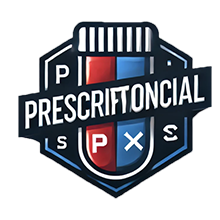Success in poker often reflects skills that are essential in various leadership contexts. Understanding how poker is played can provide insights into effective leadership strategies.
Understanding Poker as a Game
At its core, poker is a game of strategy, psychology, and decision-making. The way poker is played requires players to balance risk and reward while maintaining composure under pressure.
Key Elements of Poker
- Card Dealing: Understanding the hands and the importance of position.
- Betting: Deciding when to bet, raise, call, or fold.
- Reading Opponents: Observing tells, behavior, and betting patterns.
- Bluffing: Using deception to manipulate opponents’ perceptions.
Leadership Qualities Reflected in Poker
Leadership and poker intersect in various ways. An effective leader can learn valuable lessons about managing teams and making decisions by understanding how poker is played. Here are some adjectives that encapsulate the essence of leadership drawn from poker principles:
- Decisive: A leader must make quick decisions, similar to calculating risks in poker.
- Analytical: Understanding odds and probabilities informs both poker strategies and business decisions.
- Composed: Remaining calm under pressure is crucial in both high-stakes games and leadership challenges.
- Strategic: Leaders must plan for short-term victories and long-term goals, akin to planning moves in a poker game.
How Poker Strategies Translate to Leadership
Leaders can leverage poker strategies to enhance their effectiveness:
- Assessing Risks: Like evaluating hands in poker, leaders should assess the risks associated with new strategies.
- Gathering Information: Understanding the environment and gathering insights can inform better decisions.
- Building Trust: Just as players form alliances at the table, leaders must build trust within their teams.
- Adjusting Strategies: Flexibility is crucial; leaders must adapt their approaches as circumstances change, much like changing strategies based on card views.
FAQs about Poker and Leadership
Q: How can poker improve my leadership skills?
A: Poker helps develop strategic thinking, risk assessment, and emotional control—all essential traits for effective leadership.
Q: What are the main risks involved in poker that relate to business leadership?
A: Risks include financial loss, poor decision-making under pressure, and misreading opponents or team dynamics.
Q: Can bluffing in poker be equated to honesty in leadership?
A: While bluffing is an essential part of poker, effective leadership relies on transparency. However, knowing when to assert confidence without providing all information can be strategic.
Conclusion
In summary, how poker is played offers valuable insights into leadership. By embodying the traits of a skilled poker player, leaders can enhance their effectiveness and foster a successful organizational environment. Embrace this unique intersection of game theory and leadership principles to excel in both fields.
